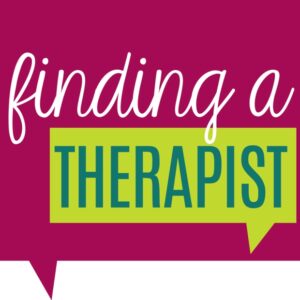What are some things you should know before you start seeing a therapist? How do you find the right one? Do your research, be aware of red flags, and always ask questions to make sure it’s the right match for you.
Contents
- 1 What Is Therapy? What do Therapists Do?
- 2 Finding The Right Therapist
- 3 Warning Signs of Questionable/Bad Therapist
- 4 Things To Know Before You Start Seeing A Therapist
- 5 How To Find Right Therapist?
- 6 Red Flags To Recognize A Bad Therapist
- 7 Signs Therapy Is Working
- 8 Confidentiality and Consent During Therapy
- 9 Conclusion
What Is Therapy? What do Therapists Do?

Therapy can help individuals find more success in everyday life by allowing them to explore themselves and their experiences without fear of judgment. As a client, the therapist will listen with an open mind and provide support, guidance, and feedback. The therapist’s goal is to help the client reach their goals in a safe and effective way.
Therapists use a variety of approaches, depending on the client’s needs. Some common therapies used are cognitive-behavioral therapy (CBT), psychodynamic therapy, family systems therapy, and humanistic therapy.
Fees for therapy vary depending on the therapist’s experience and approach. Generally, sessions cost between $50 and $200 per hour. Some therapists offer a sliding scale fee based on income. Therapists often bill insurance, but many also offer services out of pocket.
Finding The Right Therapist
 The first step to finding a therapist is deciding what you want from your therapy. There are many different types of therapy, and not all therapists offer the same services. Do you need someone who focuses on trauma? Someone who can prescribe medication? A couples counselor or family therapist? What about somebody with expertise in certain issues, like addiction, depression, anxiety disorder, or OCD? Once you’ve identified what’s most important for your needs, it’ll be easier to narrow down which type of service is best for you. It’s also good to research any potential therapists online before going into their office – read reviews and testimonials posted by former patients if possible! In order to find the right person for you, there are some things that should make them an obvious no-go:
The first step to finding a therapist is deciding what you want from your therapy. There are many different types of therapy, and not all therapists offer the same services. Do you need someone who focuses on trauma? Someone who can prescribe medication? A couples counselor or family therapist? What about somebody with expertise in certain issues, like addiction, depression, anxiety disorder, or OCD? Once you’ve identified what’s most important for your needs, it’ll be easier to narrow down which type of service is best for you. It’s also good to research any potential therapists online before going into their office – read reviews and testimonials posted by former patients if possible! In order to find the right person for you, there are some things that should make them an obvious no-go:
-Anyone who makes you feel uncomfortable or awkward. If they show any sign of unprofessional behavior, don’t go back to their office – there’s a good chance that your relationship with them will only get more and more uncomfortable as time goes on, and it’ll be difficult for you to recover from that.
-People who only want to focus on one specific issue (i.e. if all they talk about is trauma or addiction). If your therapist seems dismissive of other things you might be experiencing, try finding someone else.
-A therapist who refuses to give advice or make decisions for you. It’s important that therapists are supportive and helpful, but they also need to be able to give you guidance when needed – especially during the early stages of treatment. If your therapist is unwilling to do this, it might not be the right fit for you.
Warning Signs of Questionable/Bad Therapist
There are some warning signs that you may be seeing a bad therapist. If any of these red flags are present, it’s important to discontinue therapy and find a new therapist right away.

1. They make you feel uncomfortable or unsafe
2. They don’t seem to listen to you or understand your issues
3. They’re judgmental or dismissive of your feelings
4. They’re always trying to fix you or tell you what to do
5. They use therapy as a way to control or manipulate you
6. They’re always late or cancel appointments last minute
7. Their fees are too high or they try to bill you for extra sessions
8. They’re always trying to sell you products or services
9. They violate your privacy or share confidential information without your consent
10. They’re unethical or have a history of complaints against them.
If you experience any of these warning signs, it’s important to find a new therapist right away. Don’t be afraid to ask friends or family for recommendations, or do a quick Google search to find a therapist who is a good fit for you.
Things To Know Before You Start Seeing A Therapist
When looking for a therapist, it is important to find someone who is a good fit for you. Some things you may want to consider are the therapist’s experience, approach, and fees. It is also important to make sure that the therapist is licensed in your state.
Before you start seeing a therapist, be sure to ask any questions you have about the therapy process. You should also let the therapist know about any medications you are taking or medical conditions you have. It is also important, to be honest with the therapist about your feelings and thoughts. This will help the therapist to provide the best possible care for you.
If you are experiencing any red flags, such as feeling uncomfortable or unsafe, it is important to discontinue therapy and find a new therapist. Remember, it is your right to choose the therapist that is best for you.
How To Find Right Therapist?
 It is important to find a therapist who is a good fit for you. Some things you may want to consider are the therapist’s experience, approach, and fees. It is also important to make sure that the therapist is licensed in your state.
It is important to find a therapist who is a good fit for you. Some things you may want to consider are the therapist’s experience, approach, and fees. It is also important to make sure that the therapist is licensed in your state.
Before you start seeing a therapist, be sure to ask any questions you have about the therapy process. You should also let the therapist know about any medications you are taking or medical conditions you have. It is important for all therapists to be trained to deal with issues such as suicide and other topics that might cause a client distress.
Lastly, it is essential that before going into therapy, both parties agree to confidentiality and consent, which can easily be done by getting signed consent forms from all parties involved.
Questions to Ask Your Therapist
To make sure that you are going to the right person, here are some things you should consider asking them-
- What is your experience?
- What approach will I use?
- How long have you been a therapist?
- Can we talk on the phone before I start seeing you in person?
- Do you accept insurance or payments of any kind?
- Do you specialize in any particular areas such as eating disorders, depression, addiction, etc.?
- What type of therapy do you use?
- How much would a session cost?
- Will you bill insurance or can I pay out of pocket?
Red Flags To Recognize A Bad Therapist

Some red flags that may indicate that you are seeing a bad therapist include feeling uncomfortable or unsafe, the therapist not seeming to listen or understand your issues, being judgmental or dismissive of your feelings, always trying to fix you or tell you what to do, using therapy as a way to control or manipulate you, being always late or canceling appointments last minute, having high fees or trying to bill you for extra sessions, always trying to sell you products or services, violating your privacy or sharing confidential information without your consent, and being unethical. If any of these red flags are present, it’s important to discontinue therapy and find a new therapist right away.
When looking for a therapist, it is important to find someone who is a good fit for you. Some things you may want to consider are the therapist’s experience, approach, and fees. It is also important to make sure that the therapist is licensed in your state.
Signs Therapy Is Working
The best way to tell if therapy is working is by looking for signs. These include-

- Feeling better overall
- Gaining perspective of how others may be feeling or struggling with their own problems
- Feeling less or less often
- Having more self-compassion
- Using coping strategies you’ve learned in therapy that help you to feel better
- Feeling more relaxed or less stressed
- Having fewer problems with anxiety, depression, or other symptoms of distress
- Enjoying your life more
- Having closer, more supportive relationships
If you are experiencing these signs and symptoms, it is likely that therapy is working and you should continue with your current therapist.
If you are feeling uncomfortable or unsafe, it is important to discontinue therapy and find a new therapist. Remember, it is your right to choose the therapist that is best for you.
Therapy can be an extremely beneficial experience if done correctly. By finding the right therapist, asking the right questions, and looking for signs that therapy is working, you can make sure that you get the most out of your time in therapy.
Confidentiality and Consent During Therapy
Confidentiality is a term used in the mental health field to refer to the legally protected right of a client to keep information shared in therapy private. This means that the therapist cannot reveal any of the information you share without your written consent. Before beginning therapy, make sure that you are aware of the therapist’s confidentiality policies.
Therapy works best when you feel safe and comfortable in the therapeutic relationship. To help build this trust between you and your therapist, it is important that your therapist protects your right to privacy.
Confidentiality laws vary from state to state, but generally, therapists are required to keep information shared in therapy private. This means that the therapist cannot reveal any of the information you share without your written consent. In some cases, a therapist may need to break confidentiality if they believe there is a risk of harm to self or others, or in order to report abuse.
Typically, when you receive services from a therapist they will ask for your permission to release information. This is known as giving consent. In this case, the client has the right to request that certain professionals be given access to their records and/or treatment plan. Before beginning therapy, make sure to ask the therapist about confidentiality policies.
Conclusion
A bad therapist can make a person feel worse about themselves and their situation. The last thing you want is to be in therapy with someone who may not have the empathy or experience necessary for your individual needs. That’s why it’s important to find a good match when looking for a therapist, especially if this will be your first time going into counseling.
For more information, please contact MantraCare. Online therapists are increasingly important in today’s world because they provide a convenient and accessible way for people to receive mental health support and treatment. Visit MantraCare If you are searching for “therapist near me”. Book a trial Online therapy session


